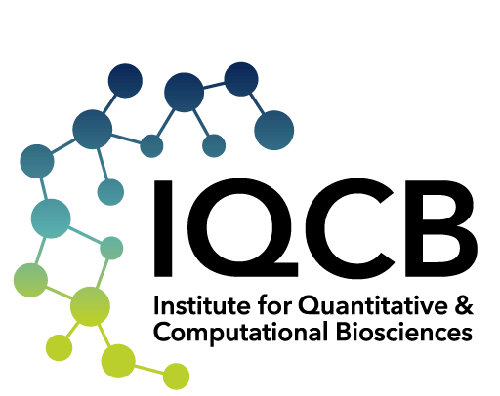News
EINSTEIN FOUNDATION EARLY CAREER AWARD
We are happy to share that IQCB group leader Dr. Maximilian Sprang from the University Medical Center Mainz won the Einstein ECR Award in 2025!
NEW MEMBER OF THE LEOPOLDINA
IQCB board member Prof. Dr. Hanna Kokko is a new member of the Leopoldina. Becoming a member of the German National Academy of Sciences Leopoldina is an outstanding achievement. Congratulations, Hanna!
Find out more about Leopoldina's mission here
Really interesting PhD position in the field of drug design and machine learning available in Oscar Palomino-Hernández´s Lab at the University of Mainz in collaboration with the University Medical Center Mainz.
Application deadline: 9 May, 2025
We are very pleased to announce that IQCB Members Miguel Andrade and Maximilian Sprang from the Faculty of Biology at JGU will be guest editors in a special issue of the MDPI Journal Genes.
They seek submissions focusing on computational aspects of batch analysis and/or correction in biological data. Their intention is to have a focus on multidimensional biological data, but they are open to expand to other types of data as long as they fall within the biomedical field.
Read more
Accepting submissions until 20 September 2025!
AI PILOT FOR LIFE SCIENCES IN RLP
IQCB member Prof. Dr. Stefan Kramer was appointed AI pilot for the life sciences in Rhineland-Palatinate by minister president Alexander Schweitzer. Congratulations!
*** NEW MILESTONE: 100 MEMBERS AT IQCB ***

25TH ANNUAL SYSTEM ADMINISTRATOR APPRECIATION DAY
26 July, 2024We'd like to send a big, heartfelt thank you to our incredible system administrator, Robert Vettel!!!
NEW STAFF MEMBER AT IQCB
Helge Vatheuer recently started his position as IT Liaison Manager
We're absolutely thrilled to introduce our newest team member, Helge Vatheuer! He is supporting us at the interface between research and IT infrastructure.
BURSTS OF COALESCENCE WITHIN POPULATION PEDIGREES WHENEVER BIG FAMILIES OCCUR
Featured article in the May 2024 issue of GENETICS
In (theoretical) population genetic analyses for diploid organisms it is a customary assumption, which is also built into state-of-the-art statistical tools based on coalescent theory, that unlinked loci have independent evolutionary histories. This is conceptually doubtful because there is after all only one population pedigree, describing the set of reproductive relationships of all individuals for all time, and all genetic information is passed through that same pedigree. In particular, any gene genealogy must be a subset of this pedigree. It is known that for reasonably large and well-mixed populations this issue has little practical ramifications as long as the the variance of offspring numbers among individuals is not too large: the law of the gene genealogies conditioned on the fixed pedigree is then practically the same as its counterpart obtained by (a priori unjustified) averaging over independent copies of the pedigree.
In an article featured in Genetics 226(5), May 2024 https://doi.org/10.1093/genetics/iyae030 researchers including IQCB member Matthias Birkner https://www.staff.uni-mainz.de/birkner/ consider population models with potentially very high variability of offspring numbers among individuals. Here, the situation can be radically different, leading to "bursts" of coalescence triggered by the pedigree at certain times across all loci. This has interesting implications for ancestral inference and understanding of multi-locus data from population(s) (models) whose single-locus genealogies are multiple merger coalescents.
NEW STAFF MEMBER AT IQCB
Robert-André Vettel now supports the IQCB as IT & Systems Administrator
Welcome Robert!!!
IQCB OPENING EVENT
9:00 AM - ca. 3:30 PM Alte Mensa, Johannes Gutenberg University MainzPlease register here https://forms.office.com/e/DfFiB4zWRm. Registration will close on 16th January at 9 AM.
Link to Program
Here is a link to the job advertisement: JG|U Stellenanzeige (uni-mainz.de)
Here is a link to the job advertisement: JG|U Stellenanzeige (uni-mainz.de)


